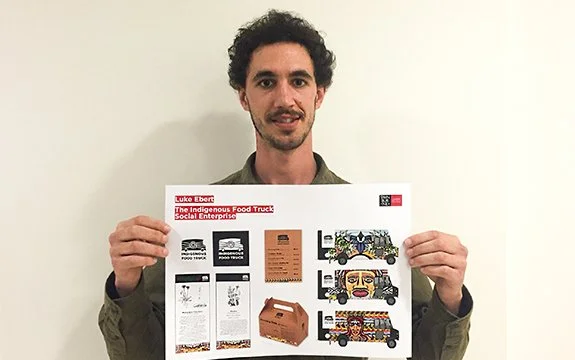Cross-Cultural Social Design Strategy
This Masters program explores the importance of collaborating and designing with different cultures, groups and communities with a focus on community-arts and social enterprise. This unit also introduces and prioritises Indigenous methodologies, knowledges and perspectives, which can be incorporated as part of culturally sensitive and community-led creative solutions. The unit examines global issues as they pertain to local business, social and environmental challenges; social and ethical responsibilities of the collaborator; designing for communities, tribes and kins; decolonising approaches; design, politics, identity and nation branding; culture, communication, language, and meaning; systems thinking and logic models. Students who successfully complete this unit will be able to:
Articulate current global issues affecting people’s everyday lives.
Develop sensitivity to cultural contexts, including Indigenous perspectives.
Explain how knowledge and being may be constructed differently from culture to culture
Identify complex design challenges in an organisation or community in a country or culture other than your own.
Produce a persuasive research-drive arts-based mental health strategy that seeks to add value to the target community, group or organisation.
Big Issue, ‘Big Idea’ National Social Enterprise Design Competition
Swinburne Master of Design student Luke Ebert has been named as a postgraduate finalist in The Big Idea competition run by The Big Issue. The Big Idea competition challenges university students across the country to develop a concept and business plan for a social enterprise idea. Mr Ebert’s big idea is an Indigenous food truck that will operate around Melbourne, working specifically with Indigenous Australian youth who have been through state protective care services. After watching some of his Indigenous high-school friends grow up battling racism, violence and identity problems, Mr Ebert was inspired to create something to offer underprivileged indigenous youth opportunities around education and employment.
“The Indigenous Food Truck can offer underprivileged youth the opportunity to take their lives in a positive direction. It gives young folk the chance to learn professional skills and gain certifications while working and making a living,” Mr Ebert says.
Mr Ebert's plan is to start in Melbourne with one food truck and has high hopes for the social enterprise to spread Australia wide. Part of the enterprise requires the food truck employees to develop menu ideas based on traditional, local and seasonal ingredients. Throughout the competition, students had access to a range of online and face-to-face sessions with members of The Big Issue management team, many of who have experience within social enterprises. Sellers of The Big Issue are also employed as guest speakers for The Big Idea to share their stories of hardship and marginalisation with the students.
Unit convenor, Dr Samantha Edwards-Vandenhoek, says she is particularly proud of Mr Ebert's project and the time he spent developing the idea. “I believe that Luke’s project was chosen because it is highly innovative, deeply authentic and driven by his own personal experiences. Luke grew up in Monbulk, with many Indigenous friends who did not have access to the same opportunities. Luke collaborated with Indigenous artist Josh Muir who created visual graphic and branding for the social enterprise. “
Student testimonial
“Samantha is a highly-motivated and inspiring teacher. Her authentic experiences in both practice and research provide such a valuable contribution to her classes, in which I was a Masters student and then her mentoring of my PhD application and process. Her connections with industry and her ability to draw these into the classroom enable highly practical outcomes. Samantha is a great asset to delivering design knowledge that is both pragmatic yet experimental, responsible yet powerful.”
(Dr Nicola St John)
